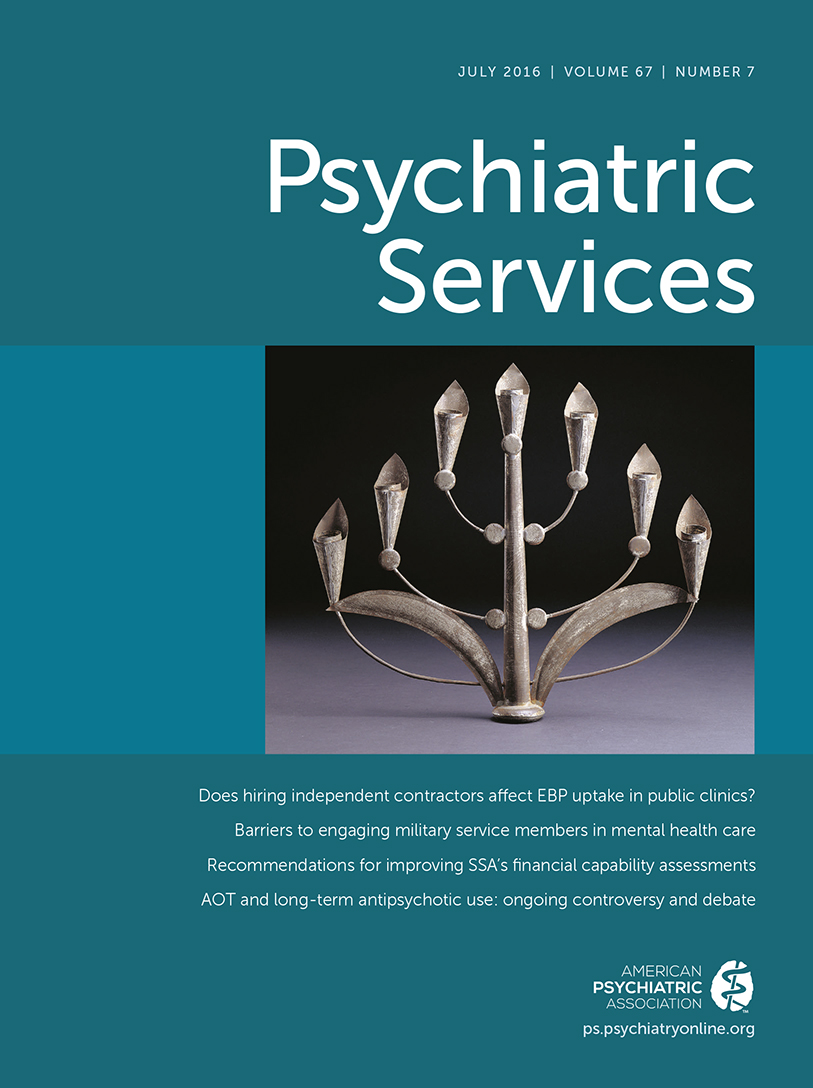Consultant Psychiatrists’ Role in Ensuring High-Quality Care From Nonspecialists
TO THE EDITOR: The column by Wagenaar and colleagues (1) in the June issue provides a strong warning about efforts that focus only on expanding access to mental health services without being equally attentive to the quality of care. Given the large shortage of mental health providers in low- and middle-income countries (2), service delivery systems have embraced “task shifting,” whereby nonspecialists provide care that is often available only from specialists, such as psychiatrists (3). In our work in Nepal, we have found that task shifting may be limited to conducting training for health care workers and sending them off to provide services with minimal or no clinical supervision.
There are similarities between conditions in Nepal and those described by Wagenaar and colleagues in Mozambique, where any patient with disruptive behavior is prescribed antipsychotics. In addition, we have seen unnecessarily high medication doses (for example, haloperidol routinely started at 10 mg daily) and other inappropriate regimens (for example, benzodiazepine monotherapy for various mental illnesses). As in Mozambique, rates of diagnosis of bipolar disorder in several clinical settings in Nepal are low, and we wonder whether patients with depression are not being screened for a history of mania—a common oversight even in high-income countries. When such patients switch to mania as a result of taking the antidepressant, the family may take them to a different health care center because they do not trust the first clinician. Such patients may then be misdiagnosed as having schizophrenia. Both situations can lead to lower rates of bipolar disorder diagnosis and may help explain the findings in Mozambique.
In some settings where task shifting is used, on-demand consultations may be provided, whereby prescribers in rural clinics call the off-site psychiatrist with questions. However, this does not address errors resulting from the unknown unknowns—for example, the prescribers may not know that they lack the training to differentiate behavioral problems of dementia from those of schizophrenia. They may prescribe antipsychotics, believing that they are providing appropriate care, and never seek a consultation. In our setting, we are implementing collaborative care, in which an off-site psychiatrist regularly conducts a panel review of all patients with mental illness (4). Fortunately, the data available in the paper registry are very useful to guide such reviews and to correct the inappropriate practices highlighted by Wagenaar and colleagues. Although some targets will certainly require data analysis (for example, determining the rate of bipolar disorder diagnosis), much of the harm from inappropriate medications, such as prescribing antipsychotics for substance use disorders, can be avoided by routinely reviewing the simple paper registry that is used in many similar settings. Wagenaar and colleagues found that 76% of the visits to their hospital were follow-ups, which provides an opportunity to improve the quality of care. This kind of proactive consultation from psychiatrists should be an essential feature of task shifting.
We thank Wagenaar and colleagues, note the applicability of their findings in our setting, and hope that their column and this letter will bring attention to the importance of increased access to quality care rather than simply to expansion of care.
1 : Outpatient mental health services in Mozambique: use and treatments. Psychiatric Services 67:588–590, 2016Link, Google Scholar
2 : Human resources for mental health care: current situation and strategies for action. Lancet 378:1654–1663, 2011Crossref, Medline, Google Scholar
3 : The future of psychiatry in low- and middle-income countries. Psychological Medicine 39:1759–1762, 2009Crossref, Medline, Google Scholar
4 : integrating primary care and behavioral health: the role of the psychiatrist in the collaborative care model. American Journal of Psychiatry 172:721–728, 2015Link, Google Scholar




